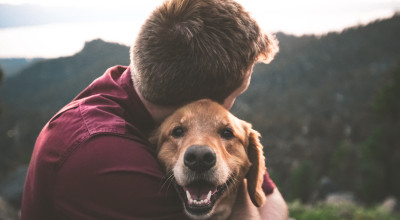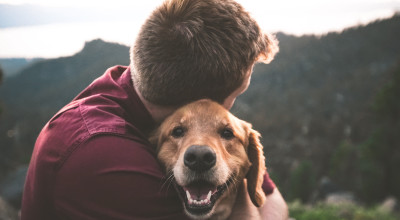Why Having a Pet is Great for Mental Health
September 1st, 2020
Pets on their own merit are a great privilege. With the right training, they can be friends, entertainment, and protectors, as well as provide endless unconditional love and joy. Likewise, pets have evolved to be highly aware of human emotions and behavior. Having a pet means taking full responsibility for its food, hygiene, and general well being. Indeed, sharing your life with an animal companion is one of life’s great joys. But, did you also know that owning a pet is incredibly influential on your mental health? In several ways, having a pet by your side could very well be the single best investment you can make for your mental health.
The human-animal bond, known as the “pet effect,” details the mutually beneficial relationship between people and their animals. The benefits are seen to positively affect the pet and owner in their respective well-being and health. These prolonged interactions specifically reduce one’s general stresses and anxiety while increasing overall levels of happiness. Moreover, the presence of a pet diminishes loneliness while encouraging playfulness and exercise. It comes as no surprise that 95% of pet owners consider their pet to be a part of the family, according to a 2015 Harrison poll. In like manner, studies have found that pet owners over age 65 make 30 percent fewer visits to their doctors than non-pet owners.
In fact, when researchers were first looking into the relationship between mental health and pets, they measured what happens to a person when petting a friendly dog. The evidence showed regulated breathing, muscle relaxation, and lowered blood pressure as well as heart rate. Such benefits can be achieved just by stroking your pet for a few minutes. Since this early research, pets have become a vital part of mental health treatment, most commonly seen in therapy and as emotional support animals. Even interactions with an animal as short as five minutes activate the “happiness hormones” in our brain— dopamine and serotonin. Further research has also shown that pet owners have lowered cholesterol and triglyceride levels, which are major factors in heart disease.
Pets also have proven to be especially helpful in increasing a person’s mindfulness, i.e., living in the moment. This is because pets themselves live in the moment and neither dwell on the past nor the future. Frequently, we hamper our own mindfulness with overthinking and constant worrying. Simple pet-related activities bring about this sort of “reality grounding” — going on walks, grooming, or just cuddling up with your pet. Often what is bothering us internally pales in comparison to spending time with our animal companions. Thus, with pets around, people are more likely to cherish the moments at hand.
Besides daily stresses, having a pet is a gift that keeps on giving when it comes to family on either end of the age spectrum. For kids, pets serve as a calming presence for those with ADHD, autism, and anxiety. Spending time with pets also helps children maintain a carefree and playful disposition. Moreover, when children grow up with pets, they tend to be more secure and active. On the opposite end, pets also provide great comfort to older people, particularly those with Alzheimer’s are expected to have fewer anxious outbursts. Equally important is the companionship offered by pets to older people that is unparalleled. As we age, good friends and family members dwindle in number, but with pets, you have both a constant friend and an easy gateway to make connections with new people.
Building and maintaining healthy habits goes hand in hand with pet ownership. Pet owners, of dogs and cats alike, need to exercise their animals regularly, and thus, get into the habit of frequent exercise. Often coupled with the exercise is spending time out in nature, which also provides many of the same mental health benefits as pet ownership. Another great habit with pets is having to get up in the morning to maintain a schedule with our animals. Feeding and caring for our pets is something that must be done at consistent times. A final important habit that pets instill in us is regular self-care. As we take the time to feed and groom our furry friends, we’re reminded to do the same for ourselves. This increased focus on self-care will boost your vitality, as it relates to your energy levels and immune system.
Building new relationships is another aspect of your life made easier by pets. More often than not, dog owners regularly stop to greet and talk to each other in pet stores, dog parks, clubs, or even in the neighborhood while on a walk. From these interactions, you can build great relationships that can last a lifetime. Plus, with your new friendships, there will be less isolation in your life, perceived or otherwise, and greater feelings of connectedness.
In presenting all the wonderful aspects of pet ownership, it is just as important to remember that there are many things to consider if and when you decide to mix a pet into your life. For starters, pets take a tremendous amount of time, money, and patience to successfully incorporate into your life. On top of this, pets don’t start out as angels and can be destructive or have accidents in your home. Another consideration is general pet allergies and posed health risks to the people in your home. While these downsides aren’t meant to be exhaustive or negative in your search for a pet, they are merely essential factors to take into account.


